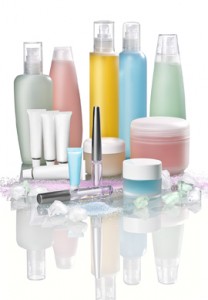29
Jun
Bill Reintroduced to Regulate Chemicals in Cosmetic Products
(Beyond Pesticides, June 29, 2011) The Safe Cosmetics Act of 2011 was reintroduced last week in the House of Representatives aiming to grant the U.S. Food and Drug Administration (FDA) authority to regulate personal care products, including cosmetics, to ensure they are free of harmful ingredients before they hit the shelves. Cosmetics currently go unregulated and can contain harmful ingredients like triclosan, heavy metals, formaldehyde and others which expose consumers to numerous health threats.
The cosmetic and personal care product industry is self-regulated. But the Safe Cosmetics Act of 2011 will, according to U.S. Representative Ed Markey, a lead sponsor on the bill, “close a gaping hole in the federal law that allows potentially toxic chemicals to remain in the cosmetics products consumers use every day. Reps. Jan Schakowsky of Illinois, Ed Markey of Massachusetts and Tammy Baldwin of Wisconsin offered the “Safe Cosmetics Act of 2011,” which would require companies to put all of a product’s ingredients on its label. It would also require the Department of Health and Human Services to conduct random annual tests of products for harmful substances and would force FDA to produce a list of ingredients that are prohibited from being used in cosmetics. It would also mandate that cosmetics companies report any cases of adverse health effects associated with a product.
The key points in the Safe Cosmetics Act of 2011:
Ӣ Phase-out of ingredients linked to cancer, birth defects and developmental harm;
Ӣ Creation of a health-based, risk assessment, safety standard that includes protections for children, the elderly, workers and other vulnerable populations;
Ӣ Elimination of labeling loopholes by requiring full ingredient disclosure on product labels and company websites, including salon products and the constituent ingredients of fragrance;
Ӣ Worker access to information about unsafe chemicals in personal care products;
Ӣ Required data-sharing to avoid duplicate testing and encourage the development of alternatives to animal testing; and
Ӣ Adequate funding to the FDA Office of Cosmetics and Colors so it has the resources it needs to provide effective oversight of the cosmetics industry.
While Beyond Pesticides generally supports legislation that removes hazardous chemicals from the market like the Safe Cosmetics Act, the organization, in addition, advances public policies that require alternatives assessments that remove synthetic chemicals from the market. Alternatives assessments typically show that many of the chemicals that meet risks assessment standards are allowed in commerce with “acceptable” hazards or uncertainties related to chemical interactions, depsite the availability of less toxic or green technologies.
The cosmetics industry uses approximately 12,500 unique chemicals in cosmetic products. The majority of those chemicals have never been tested for adverse health effects.
“The growing number of reports of serious health problems arising from the use of dangerous chemicals in personal care products show a need to update our laws and protect men, women, and children from harmful exposure,” Rep. Schakowsky said in a statement. “Currently, manufacturers are not required to disclose all their ingredients on labels and the FDA has no power to supervise the use of toxic chemicals in cosmetics.”
The bill has been updated since 2010 to make it more manageable for smaller companies to comply with its regulations which is extremely important considering many small businesses are the ones spearheading the push for safer cosmetics in their products. The bill will have its first hearing at the House Energy and Commerce Committee, where it’s three lead sponsors, Representative Ed Markey, Representative Jan Schakowsky, and Representative Tammy Baldwin, are committee members.
Having full ingredient disclosure on consumer products have received push back from industry, which claims revealing such information would be a breach of confidential business information. Recent attempts by the U.S. Environmental Protection Agency (EPA) to disclose “inert” ingredient on pesticide products have stalled due to industry pressure. Ingredients like triclosan, the controversial antibacterial pesticides found in many consumer products from toothpastes to toys is under scrutiny due to its association with thyroid impacts and other endocrine disrupting effects. Beyond Pesticides and others have petitioned both FDA and EPA to remove this harmful chemical form cosmetics and other consumer products. For more on triclosan in your favorite products, visit the Triclosan Program page. Sign the pledge today to go triclosan-free.
Support the Safe Cosmetics Act of 2011 here.
Source: Treehugger










